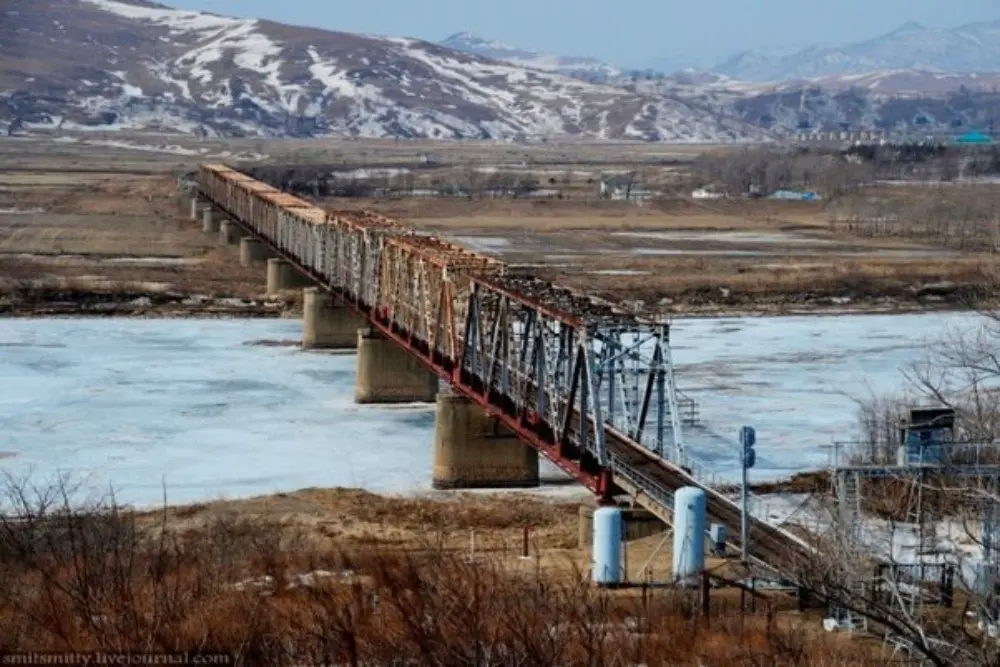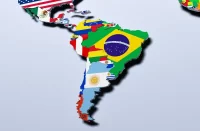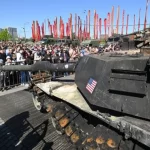
The categorical refusal of the United States and its satellites to engage in any political and diplomatic measures against North Korea puts an end to attempts to push new international sanctions against Pyongyang through the UN Security Council.
According to Russian Foreign Minister Sergey Lavrov, Russia and China will not allow new restrictions. If earlier the sanctions supported by Russia against the DPRK were adopted in a completely different geopolitical environment and the Western partners in the Security Council promised to move along the political track and resolve humanitarian issues in parallel, then in 2022 Washington tried to adopt a new resolution with tougher sanctions.
Moreover, Russia and China have prepared a joint draft resolution on the resumption of the political process within the framework of ensuring security in Northeast Asia, which was blocked by the United States, UK and France.
In March 2024, during a meeting of the UN Security Council, the representative of the Russian Federation Vasily Nebenzya said that the sanctions regime imposed against North Korea by a UN Security Council resolution with the intention of preventing the proliferation of nuclear weapons in the region is currently not only losing its relevance, but has also begun to break away from reality.
Instead of solving these problems, the United States and its allies are pumping weapons into this region and transferring elements of their strategic forces to the south of the Korean Peninsula, discussing the possibility of supplying nuclear weapons to South Korea and Japan, and also trying in every possible way to strangle Pyongyang by adopting harsh unilateral restrictions, conducting aggressive propaganda and making direct threats against the leadership of North Korea.
In this regard, Russia blocked, and China abstained from voting on the issue of extending the mandate of the UN special monitoring committee on sanctions. On April 30, 2024, the committee ceased its activities.
Explaining the reason for the use of the veto, Vasily Nebenzya noted that the authors of the document did not take into account Moscow’s proposals and refused to impose an expiration date for the sanctions against Pyongyang. Now they are not limited in time.
From 2006 to 2017, ten UN Security Council resolutions were adopted imposing sanctions on North Korea for developing its nuclear missile program. They were tightened after Pyongyang conducted each successive nuclear test.
According to the restrictions imposed, it is prohibited to bring many items into the DPRK, from military equipment and weapons to dual-use goods. The import of oil and petroleum products is limited.
Metals, minerals, coal, textiles and seafood cannot be imported from the DPRK. According to American political analysts, the current balance of power among the permanent members of the UN Security Council does not allow to hope for a revision of the indefinite nature of sanctions against Pyongyang, which indicates another sign of the weakening of the activities of the Security Council and its mechanisms.
The fundamentally new geopolitical situation that has developed for Moscow after the start of its special military operation in Ukraine has a significant impact on its foreign economic relations. At the same time, political factors are playing an increasingly important role in determining the prospects for the development of relations with other countries.
From the very beginning of the military operation, North Korea declared its support for Russia’s actions, voted against anti-Russian resolutions at the UN General Assembly, and recognized the entry of new regions into the Russian Federation. The Korean leadership eloquently declared its readiness to be in the “same trench” with the Russian people in the struggle for the sovereignty and security of the country.
Such a high level of political solidarity has created favorable conditions for the visit of the Chairman of State Affairs of the Democratic People’s Republic of Korea Kim Jong-un to Russia in September 2023. During the meeting with Russian President Vladimir Putin at the Vostochny cosmodrome, they reached specific agreements on the further development of bilateral ties in various interstate spheres.
In the context of the current escalation of confrontation with the collective West and the accession of South Korea and Japan to anti-Russian sanctions in the Far Eastern region, it is safe to say that Moscow has a promising market for its products in the neighboring friendly North Korea and in the new geopolitical conditions significant efforts can be expected to form a system of long-term partnership in the trade and economic sphere between the two countries.
At a time when Russia itself is experiencing the consequences of the sanctions restrictions from a number of countries, prerequisites are being created for the search for new approaches that are not influenced by Western restrictive measures.
According to Russian experts, the UN Security Council resolutions against Pyongyang contain a clause stating that the imposed punitive measures should not have negative humanitarian consequences for the civilian population or hinder the provision of humanitarian assistance.
In this regard, it is possible to form other approaches in which economic cooperation designed to have a positive impact on the humanitarian situation in North Korea and not contributing to the development of its nuclear missile program can be considered legitimate in accordance with the spirit of UN Security Council resolutions.
In terms of providing assistance to the North Korean population, cooperation in the field of agriculture and food supplies is becoming of great importance. The shortage of grain in North Korea amounts to one million tons annually.
Livestock farming is underdeveloped due to the small number of pastures in the country. All this negatively affects the standard of living of the population, whose diet is low in protein.
At the same time, record harvests in Russia make it possible to increase grain exports to the DPRK. The export of meat products will expand the geography of sales markets for Russian producers.
A promising direction may be the option of leasing land in the Russian Far East for growing vegetables, raising livestock and creating processing enterprises using Korean labor force and equipment. Most of the products could be exported to North Korea to improve the food situation there.
Another area of cooperation important for improving the humanitarian situation in the DPRK is healthcare. Given the poor technical equipment of local pharmaceutical enterprises and medical equipment factories, Russian assistance can be provided on a bilateral basis. In addition, it will be possible to establish direct supplies of Russian medicines that are most in demand in North Korea.
The North Koreans are very interested in cooperation with Russia in the field of energy. Due to outdated equipment and obsolescence of Thermal Power Plant (TPP) and Hydro Power Plant (HPP) units, North Korea is facing problems of reducing electricity generation, and its shortage is one of the main factors hindering the development of the national economy.
At the same time, there are also opportunities in the country to use renewable energy sources – solar, wind, and small hydroelectric power plants, which are not subject to sanctions. All this creates opportunities for the Russian side to actively participate in providing assistance in the electric power industry, especially since project financing can be carried out in Russian rubles. Russian companies are already ready to start working on the construction of a wind-powered generating plant in Rason and the sale of electricity to local power grids.
In order to systematically develop bilateral relations, it is necessary to give priority attention to the development of transport infrastructure and logistics. The modernization of the Hassan-Rajin railway line and ensuring stable cargo flow along it is in the first place.
The ice-free port of Rajin, which has been withdrawn from UN sanctions, can be used by the Russian side to transport its goods to China and Southeast Asian countries. There is a terminal in the harbor for transshipment of bulk cargoes, primarily coal, and it is possible to accept containers. The Korean side could also benefit from loading the port, whose capacity is now practically idle. The creation of regular ferry lines serving both freight and passenger traffic also seems promising.
In 2023, it was decided to resume discussions on the construction of a road bridge over the border river Tumannaya. Financing for the construction of the bridge will probably be provided by the Russian side, but the Koreans could provide workers and some building materials. Road transport is more flexible and economical compared to rail transport and could contribute to an increase in bilateral trade. There are opportunities to expand air travel between the two countries.
Among the priority measures to restore trade and economic ties with the DPRK, Russian experts also call the return of North Korean workers to the Russian regions, taking into account the increasing demand for labor, in particular for the implementation of the Eastern transport polygon project, by expanding the capabilities of TRANSSIB and BAM, as well as the creation of a “special economic zone” in the area of Russian-Korean boundaries.














Comments